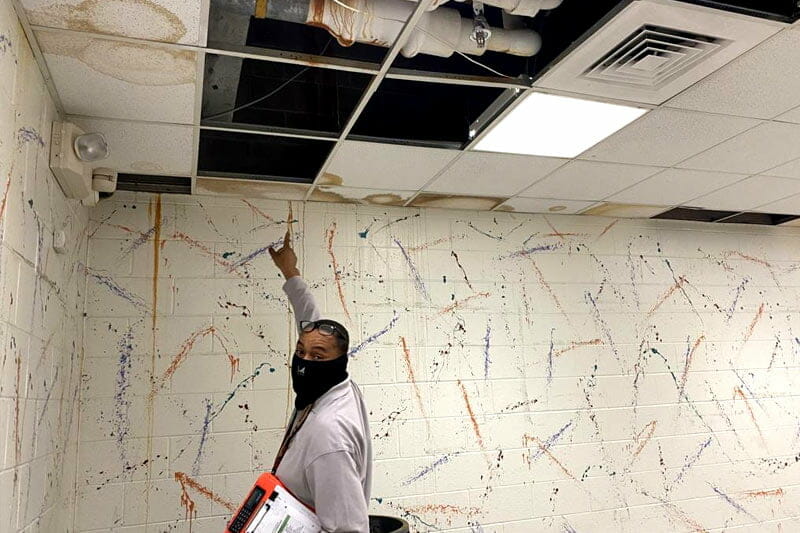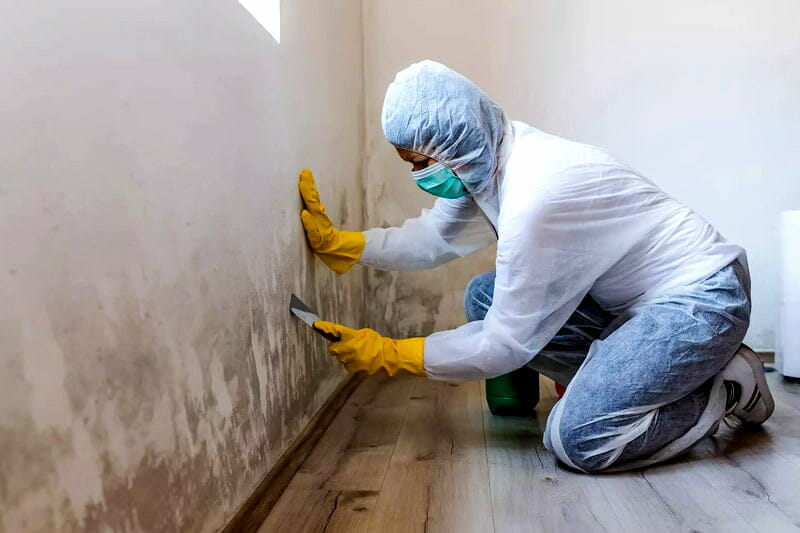The responsibility for daily maintenance of the property falls to the tenant, while it is the duty of the landlord to keep the property in a clean condition. Therefore, if you discover mold in your apartment, it is crucial that you notify your landlord immediately.
In landlord-tenant statutes, regulations, or town ordinances in Connecticut State there isn’t specific law that addresses the mold as the landlord’s responsibility.
The above does not mean that landlords should not take care about maintaining safe and habitable premises, and the good condition of the roofs, windows, and pipes which can leak water and cause mold eventually.

What we cover
ToggleA few words to start with…
You as the tenant have the right to sue the landlord over-mold if you can prove that mold has caused you damage. This allows you the Connecticut General Assembly.
Additionally, tenants can file suit based on breach of contract because the landlord must give the tenant a home that is safe for humans, and we all know that mold is a significant problem.
Whose responsibility is mold in Connecticut State?
The tenant must prove that the landlord was notified of the problem, for example in a certified letter and that the landlord failed to fix the problem. This is due to the fact that the landlord must make sure that the tenant has a safe home.
Landlords are also responsible for fixing all problems that might interfere with the habitability of the home including leaking pipes and damaged roofs.
Also, tenant behavior may cause mold by not keeping the home clean or increasing the humidity levels. In cases where mold growth is caused by tenants’ negligence, the landlord is not responsible.
That’s why Connecticut State law states that both landlords and tenants are responsible for maintaining the rental property.
How is the responsibility for mold-related damages established?
Commercial rental
Liability regarding the presence of mold is usually addressed in the terms of a contract between the parties. A typical commercial lease has a “maintenance and repairs” clause that specifies the landlord’s and the tenant’s responsibility.
The obligations under the lease are generally described in a way that establishes which party is responsible for:
- “Reasonable wear and tear”;
- “Structural repairs”.
By any logic of the obligation relationship, both parties to the contract are equally sophisticated in their potential to negotiate the terms of the agreement.
Residential rental
Under a residential tenancy, there are various legal issues that the court can consider when determining liability in a landlord-tenant case that involves mold-related injuries.
Like in most states, “implied warranty of habitability” is the most broadly applied legal principle that appears in landlord-tenant statutes.
Additionally, the landlord or a tenant has the right to point out laws outside of the landlord-tenant statutes to establish legal obligations in cases involving mold injuries. These include laws that require parties to:
- Provide certain notices and disclosures about the condition of the property;
- Adhere to certain moisture and weatherproofing requirements.
From a contract law perspective, parties can include mold clauses in their lease agreements as a protection to a landlord from liability due to any injury resulting from mold.
How long does the landlord have to fix the mold problem in Connecticut?
After you have filled the official complaint and notified the landlord about the mold problem, the landlord has 21 days to react and fix the mold problem. If he fails to fix the problem or doesn’t react, you can start your lawsuit.

Can you sell a house with mold in Connecticut?
Yes, you can. It is very important to know what you are dealing with before you decide to sell a house with mold. A few steps are crucial before you can sell such a house:
Locate the health risks
It is very important to ensure what type of mold is present in the house and the health risks that come with it. This way you and your potential buyer will be more informed about the mold situation.
Locate the structural damages
Mold can be detrimental to the structure of the house if it is not taken care of immediately. If you hire a real estate agent he must be the first to know about the mold issues and structural damages.
Find out what causes mold
Moisture is ranked highest on the mold-causing scale. Mold growth and mold infestation appear as a result of home water damage.

Mold disclosure in Connecticut State
Residential sellers must make certain disclosures to the potential buyer or renter according to the Connecticut General Statute (§ 20-327b).
In Connecticut State landlords are also required to fill out mold disclosure forms and offer a warranty that indicates mold existence. Mold disclosure is needed to instill trust with the potential buyer and at the same time notify them about the mold exposure.
Honesty is the best policy so be sure to disclose mold issues from the start so the potential buyer can be aware of the potential structural damage and health risk involved.
It doesn’t matter how big or small the mold problem is, you must tell potential buyers about it so they can make the best purchasing decision for them.












